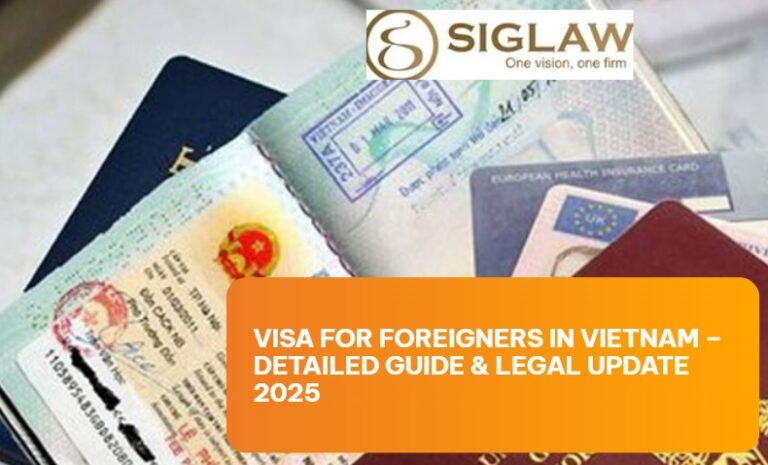CLASSIFICATION OF FOREIGN INVESTMENT CAPITAL
Investment capital is a profit-generating activity that attracts the attention of many, especially investors. Among various aspects, the source of investment capital is an important factor that both domestic and foreign investors seek to understand. In addition to domestic investment capital, there is also foreign investment capital. So, what is foreign investment capital? How is foreign investment capital classified? Let’s take a look at the following article to gather the necessary information.
Concept of Foreign Investment
Foreign investment refers to the investment made by foreign investors in domestic companies and assets of another country. Large multinational corporations seek new opportunities for economic growth by opening branches and expanding investments into other countries.
Foreign investment occurs when a company or individual from one country invests in the assets or ownership shares of a company headquartered in another country. As globalization in business increases, it has become very common for large companies to open branches and invest money in companies in other countries. These companies may be opening new manufacturing plants and attracting labor to produce at lower costs and with lower taxes in another country. They may invest abroad in another company because the acquired company has specific technology, products, or additional customer access that the acquiring company desires.
Overall, foreign investment in a country is generally a positive sign that often leads to job and income growth. As foreign investment in a country increases, it can lead to even larger investments because others see that country as economically stable.
Concept of Foreign Investment Capital
Foreign investment capital is understood as the funds (in the form of cash or assets) that investors from one country allocate to invest in or carry out one or several business production activities or projects over a specified period and at specific locations, under a certain form of investment in another country.
In simpler terms, foreign investment capital refers to the funds provided by investors (organizations/individuals) from one country to invest in a project or business activity in another country with the aim of seeking profit. For example, if a development project in Vietnam is funded by a non-governmental organization from the U.S., that funding is considered foreign investment capital.
Therefore, foreign investment involves the process of capital flow moving from one country to another. Foreign investment capital consists of funds from abroad invested in domestic businesses, allowing foreign investors to own a certain amount of shares. Domestic enterprises, when engaging in globalization, will accept foreign investment funds, and if the investment is substantial enough, it may allow foreign investors to influence the business strategies of the enterprise.
Types of Foreign Investment Capital
Foreign investment capital primarily plays a role in supporting the long-term economic growth of the host country. These funds can come from individuals, companies, or corporations. However, the majority of substantial investments are made by businesses and corporations with the aim of expanding branches and developing operations in various countries around the world. Depending on the investment form, foreign capital is classified into two types:
Direct Investment
Foreign Direct Investment (FDI) refers to the long-term investment made by individuals or companies from one country into another by establishing production and business facilities. The foreign individual or company will hold management rights over these facilities. At this point, the investor is often referred to as the parent company, while the assets are referred to as subsidiaries or branches. FDI is a source of funds or cash flow directly invested by foreign individuals or organizations in various forms.
Indirect Investment
Indirect foreign investment, also known as Official Development Assistance (ODA), comes from investors such as governments, United Nations member states, non-governmental organizations, and international financial institutions. This investment is directed towards developing or underdeveloped countries with the aim of promoting economic and social development. This funding is usually represented through long-term loans with low or zero interest rates extended to the government of the host country.
Additionally, these large corporations often seek to do business in countries where they can pay the least taxes. They may achieve this by relocating their headquarters or business units to countries with favorable tax laws to attract foreign investors.
Other Forms
There are two additional types of foreign investment considered:
Official Capital Flows
Official capital flows is a general term used to refer to various forms of development assistance provided to developing or developed countries by another country around the world.
Commercial Loans
Commercial loans typically take the form of bank loans issued by a domestic bank to buyers, which are businesses in foreign countries or governments of those countries. Until the 1980s, commercial loans were the largest source of foreign investment, providing many benefits to developing countries and emerging markets. After this period, the volume of commercial loan investments declined, while direct investments and portfolio investments increased significantly worldwide.
Phone: (+84) 961 366 238
Email:
- vphn@siglaw.com.vn
- vphcm@siglaw.com.vn
Headquarters: No.44/A32-NV13, Gleximco A, Le Trong Tan street, An Khanh, Hoai Duc, Ha Noi, Vietnam.
Southern branch: No.103 – 105 Nguyen Dinh Chieu Str., Xuan Hoa Ward, Ho Chi Minh.
Central branch: VIFC DN – ICT Building Software Park No. 2, Nhu Nguyet Street, Hai Chau Ward, Da Nang City
Facebook: https://www.facebook.com/hangluatSiglaw









